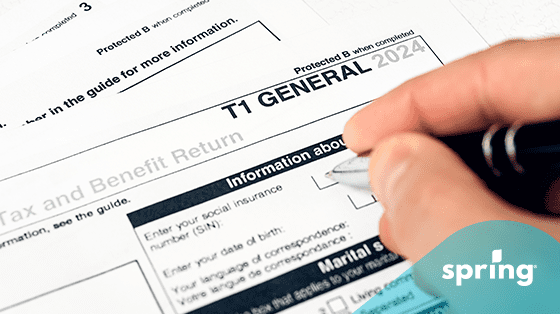Let’s go over some of the most common scenarios.
Reasons Collections are No Longer Seen on Your Report
Every month, all of your monthly payments regarding credit accounts and bills are reported to the credit bureaus. Depending on the types of accounts that you have, positive payments may not increase your credit score, but missed payments and late payments (negative information) will have a negative impact and show up on your report.
When you check your report, though, you may notice that some collection amounts are missing. Why is this? Let’s look at a few reasons.
It Naturally Disappeared
The most common reason a collections debt no longer appears on your credit report is that it falls off naturally. Whether this debt is paid or not, collections stay on your report for six years.
An Error
Since credit reports are updated and tracked using technology, errors and glitches occasionally occur. That said, if it were a glitch made by a collections agency or a financial institution, the debt wouldn’t stay off of your credit report very long. You should notice it reappear quickly.
The Debt Was Purchased
If the collection amount you owed was with an internal collection department, you may notice that it falls off your credit report after a few months. The most likely reason is that the debt has been sold to debt collectors from a collection agency from the original creditor, and it will take time for the transition to take effect.
The Lender Changed Their Name
If a lender has been sold or changed its name, this could be another reason that your collection has dropped off of your report. This happens because the debt will have to be added to your report under the new name. So, the debt won’t be missing long, and you should notice it will reappear under the new name soon, and all of your collection information will match.
Credit Accounts Not On Your Credit Report
In Canada, there are two main credit bureaus: Transunion and Equifax. Since there are two credit bureaus, you have both a Transunion credit report and an Equifax credit report. Some lenders have their preferred bureau and don’t report to both. In some cases, you may have your credit report run and notice you have a credit account missing because it’s on the other credit bureau’s report.
In this situation, what do you do? Well, the first thing to do is check your other credit report and see if the missing credit account is there. If it is, then the next step would be to call the lender. You can see if they’re willing to report to the other bureaus as well. If that doesn’t work, then the next step would be to contact the credit bureaus and see how you’re able to get the credit account on both reports.
If the credit accounts don’t appear on either credit reporting agencies report, then it’s possible that these are closed accounts and have fallen off of your report. This is common with older accounts.
How Collections Missing From Your Reports Affects Your Credit Score
Once the collections are permanently removed from the credit report, the damage from the late or missed payments remains. That said, the damage from the collections account itself has been removed, and the damage has decreased. You may even notice a slight increase in your credit score.
The main thing that having collections removed from your credit report does, though, is make it simple to add some more positive credit accounts to your report. Lenders will no longer see the collections when they do a credit check, so it can increase your chances of getting more credit. The more positive information you’re able to add to your credit report, the more your negative credit damage will be erased.
Unpaid Debt and Paid Debt
There are many different misconceptions about debt collections, so let’s clear them up. The first is that collections will stay on your credit report until they’re paid, and that’s just not true. Debt collections will stay on your credit report for six years, whether the debt is paid or not.
It’s also commonly thought that collections can’t be removed from your credit report early, but it can happen. When you’re paying off your collections, you can make a deal with your collector during the debt settlement that you’ll pay the debt in full as long as it’s removed from your report.
As long as the amount is paid as agreed, it should be removed from your report. The creditor will get their money, and you’ll be able to reach a good credit score faster. However, it’s important to remember that this deal won’t always be made and depends on individual circumstances.
Another important thing to remember is that just because the collections fall off of your report doesn’t mean that you no longer owe money. The lender or collection agency can still come after you for the owed money until the deal is made. However, whether or not they choose to do so is based on the debt. If the debt is not paid, though, it can affect your ability to get a mortgage or work with certain lenders again.
How Long Does Information Stay on Your Credit Report?
How long information stays on your credit report depends on your active credit accounts. Let’s examine the certain period of time each type shows on your report.
- Judgements: These are a result of legal action and result in legal agreements made in a lawsuit. They can stay on your credit report for six years from the date filed and the legal agreement set. In Prince Edward Island, it stays on your report for up to seven years unless it’s unfulfilled. In this case, it will stay for ten years.
- Bankruptcies: In Canada, bankruptcies remain on your credit report for six years from the discharge date. If they haven’t been discharged, they will stay for seven years from the date of filing. In the case of more than one bankruptcy, the oldest one remains for 14 years from the settlement date or the filing date, depending.
- Consumer debt counseling: This is used to help you take control of your debt and avoid bankruptcy. It will remain on your report for three years after the date of settlemcent or six years from the filing date.
- Consumer proposals: With consumer proposals, Licensed Insolvency Trustees work with your lenders to make a deal you can afford. They stay on your report for three years from the settlement date or six years from the filing date.
- Garnishment: This is when a company or lender starts to take money directly from your wages before the money enters your bank account. It stays on your report for six years from the filing date. In PEI, it’s 7 years if it’s satisfied and ten years if it isn’t.
- Foreclosure: This is when the bank seizes your home due to missed payments. It remains on your credit report for six years after it’s been filed and is based on the original delinquency date. Since mortgages are secured loans, the bank seizes the asset instead of going to collections as they would with unsecured debts.
- Inquiries: These are when potential creditors check your credit report, and they can remain for three to six years.
- Active credit accounts: These consist of loans, auto loans and credit card debt. They stay on your credit report for six years after the last day of activity. If it isn’t used, then it stays for six years from the open date.
Why Your Mortgage Disappeared From Your Credit Report
Whether or not your mortgage shows up on your credit report depends on your lender. Mortgages generally don’t affect your credit report unless you miss payments, so some lenders don’t report your positive payments. They only report if you miss any payments since the positive payments don’t affect your personal finance situation. For this reason, it’s not entirely uncommon for your mortgage not to show.









